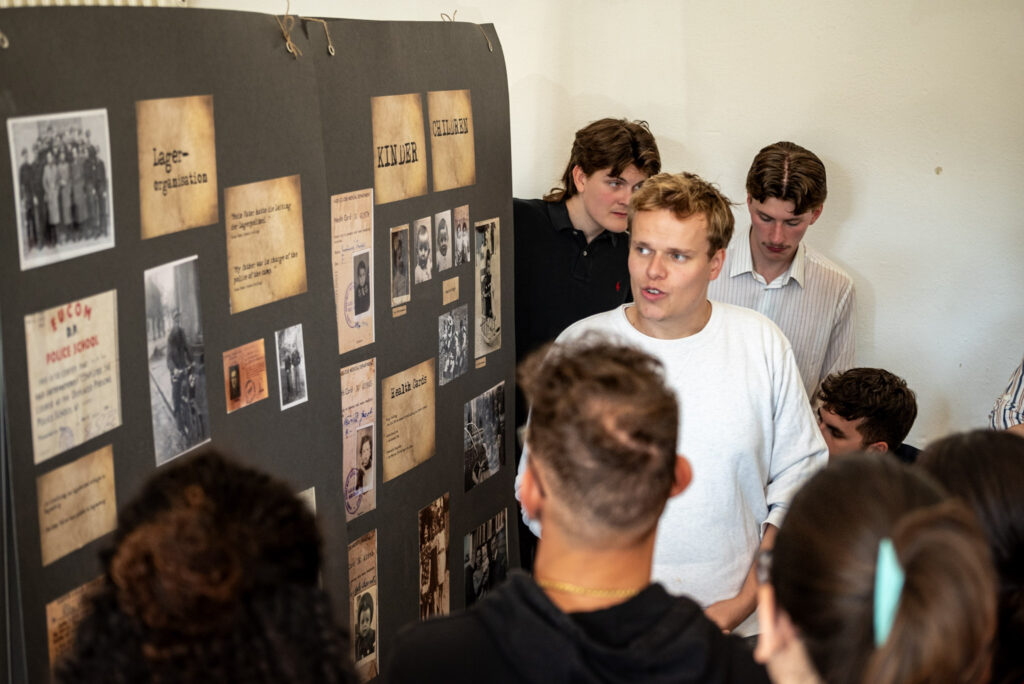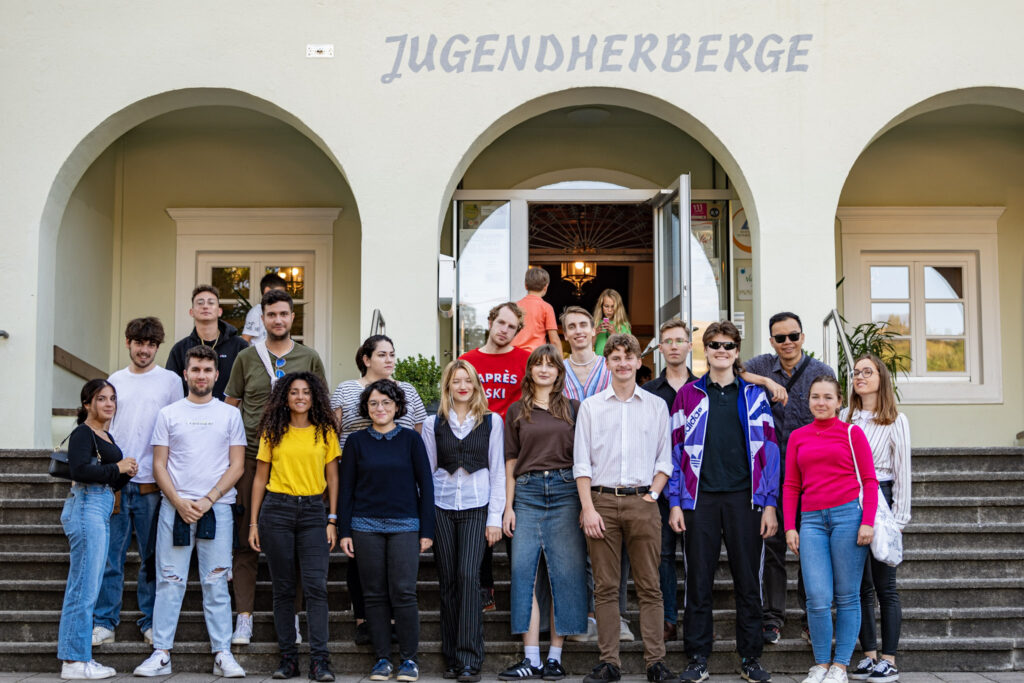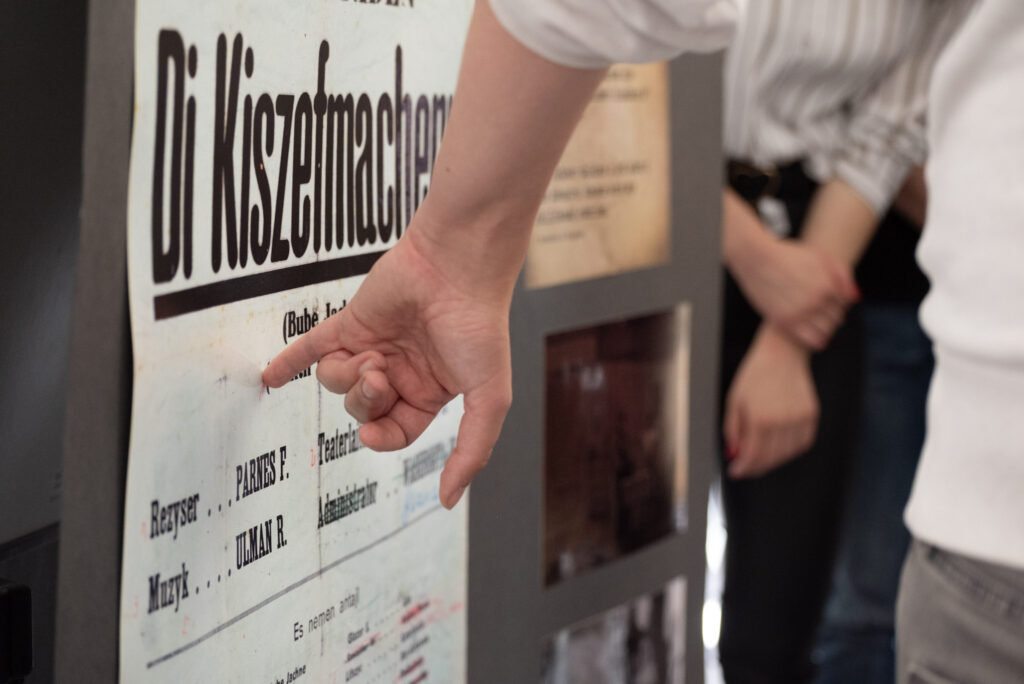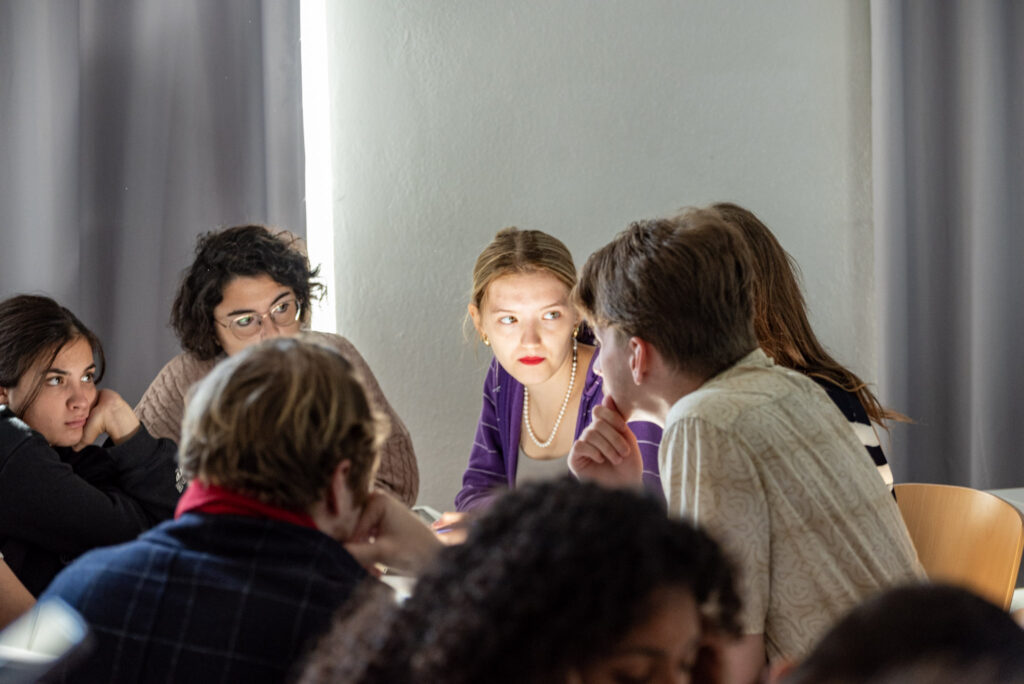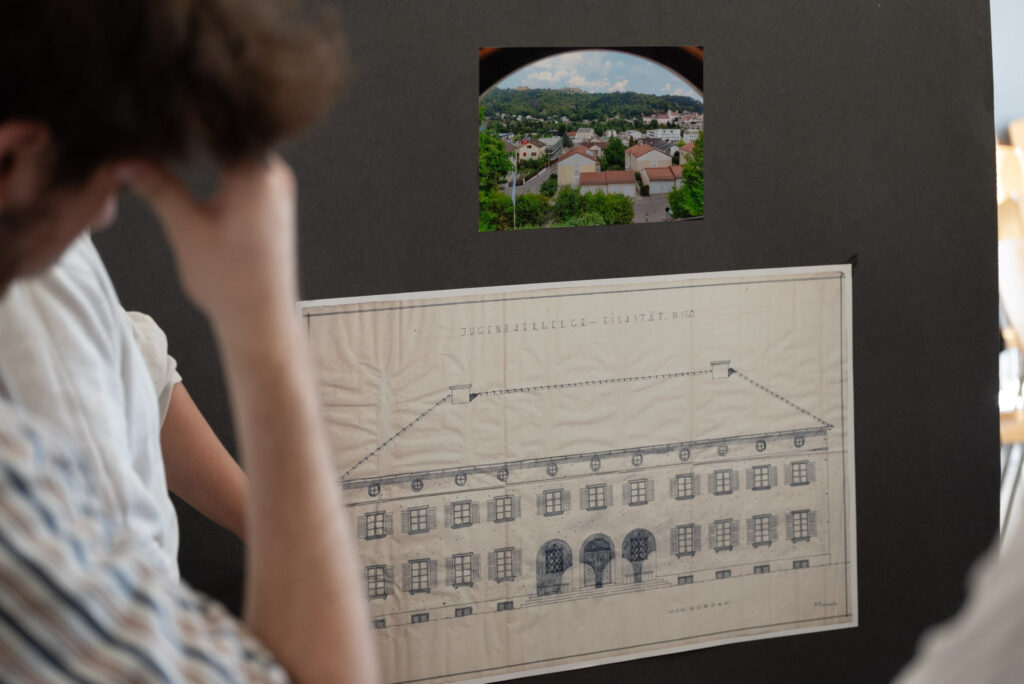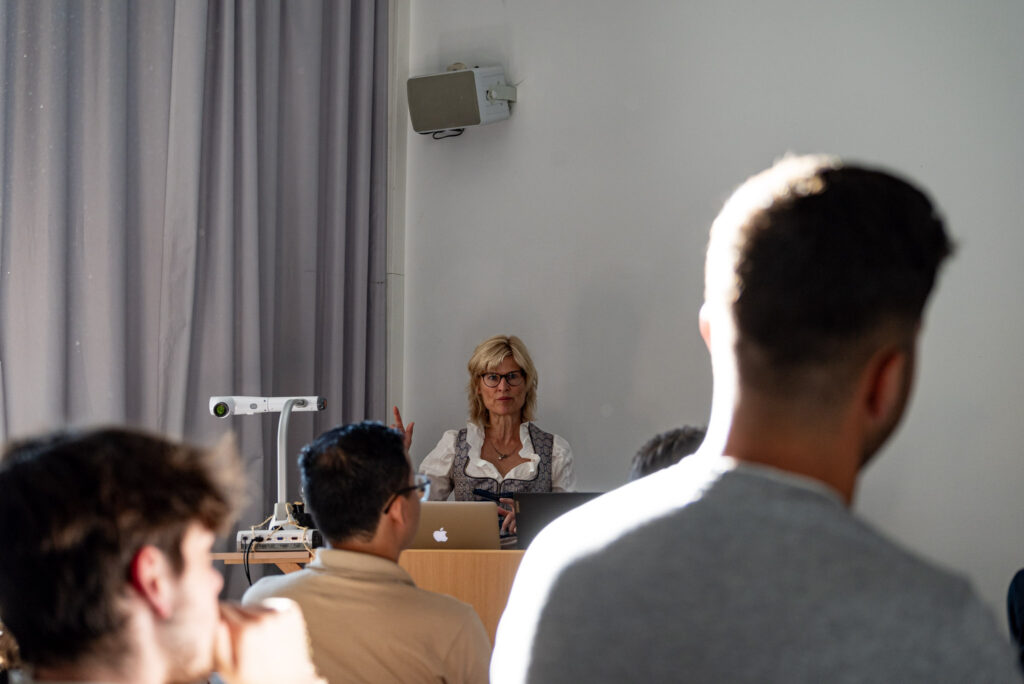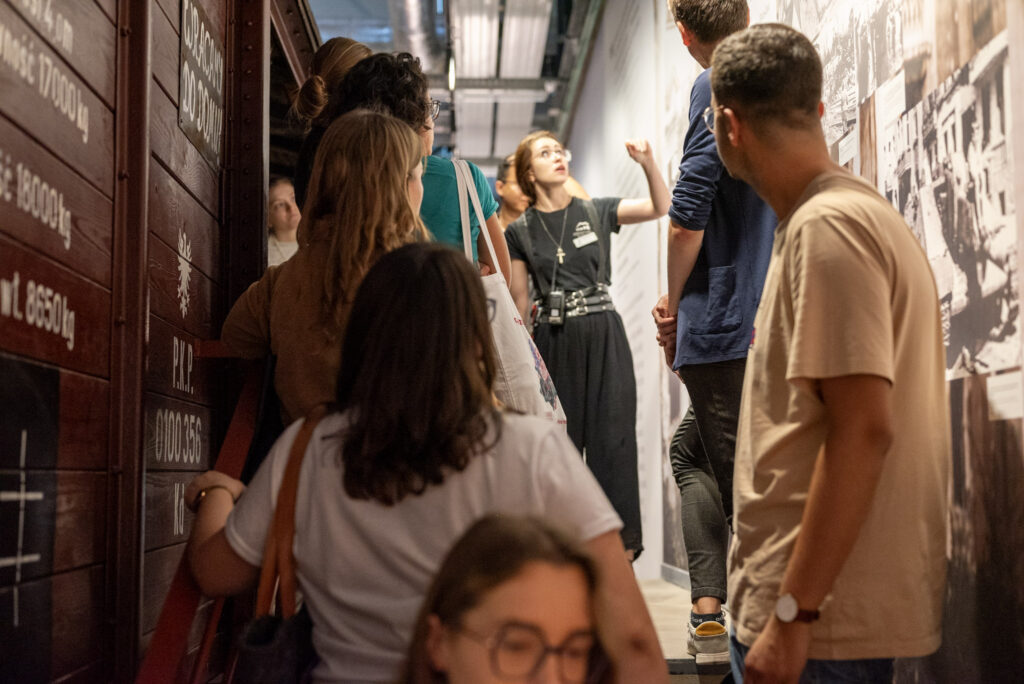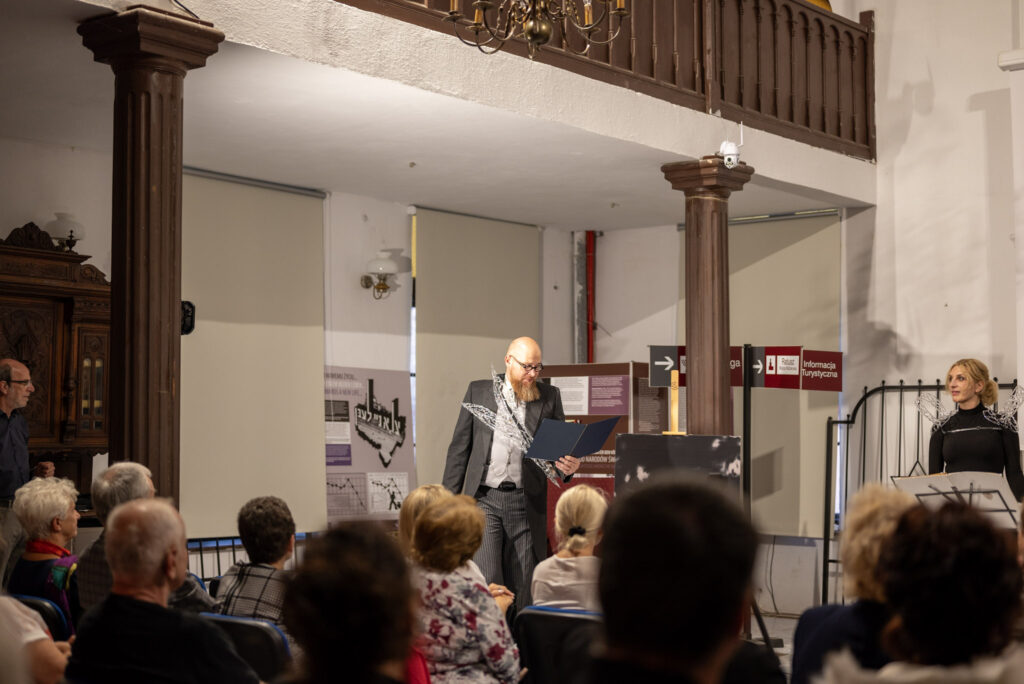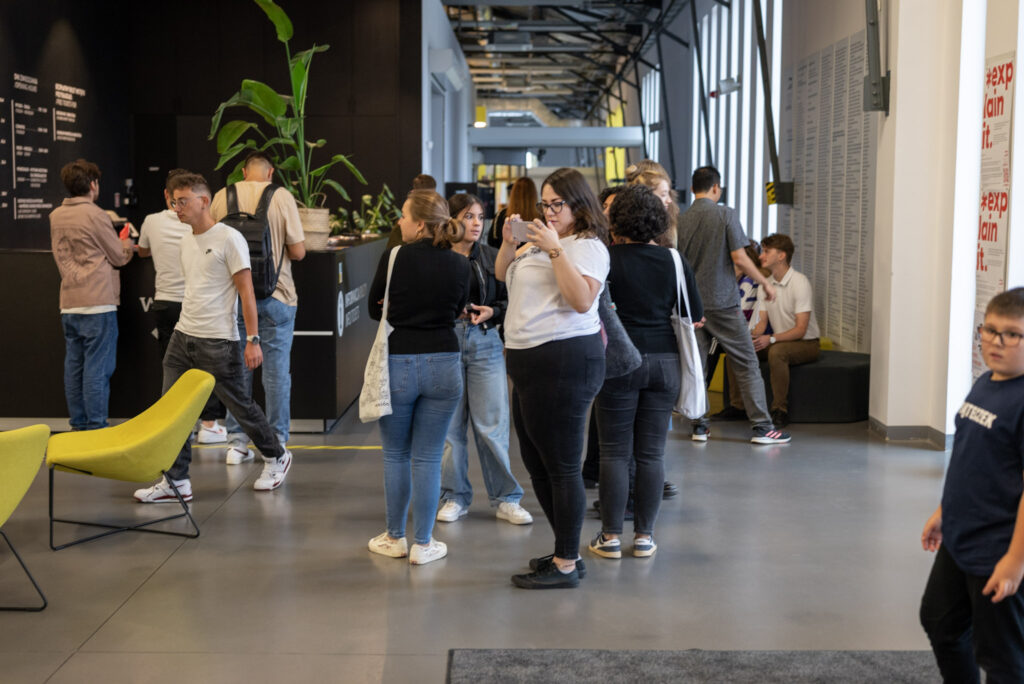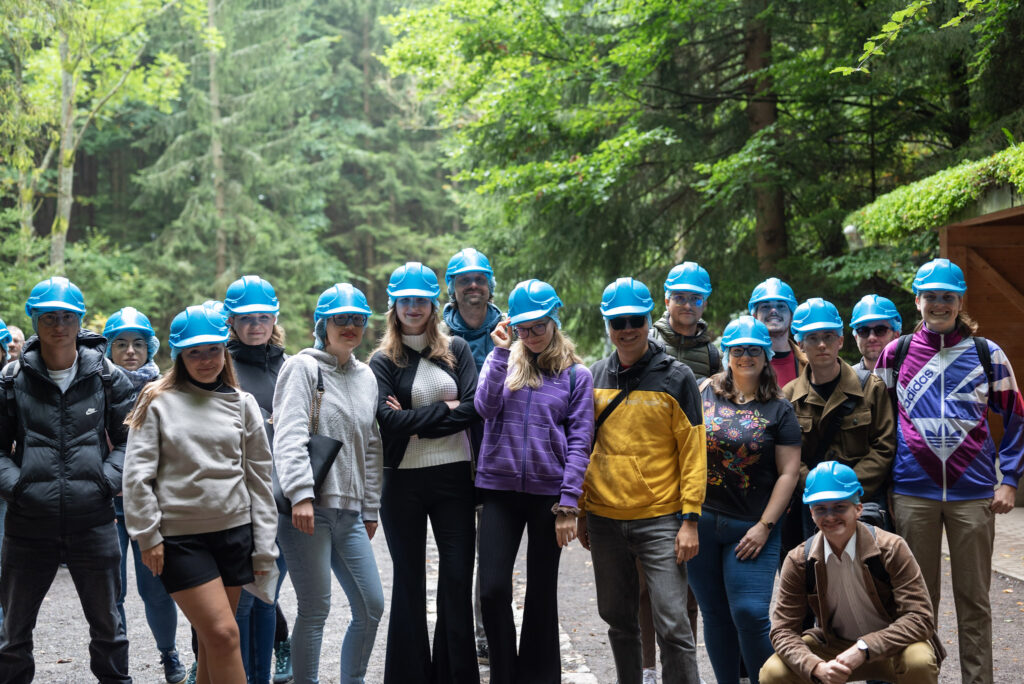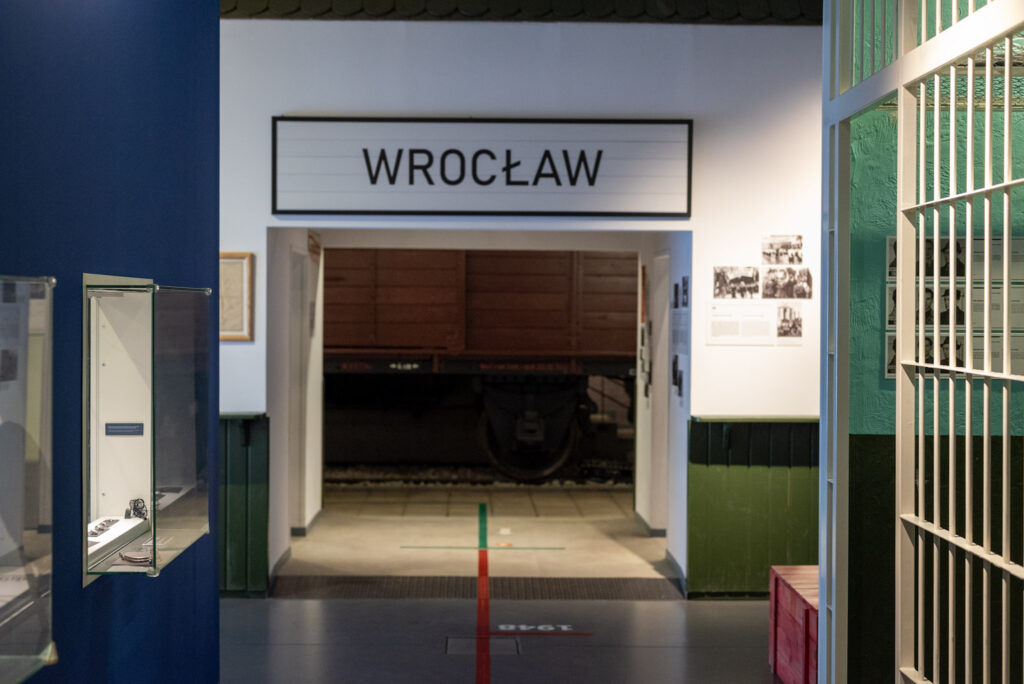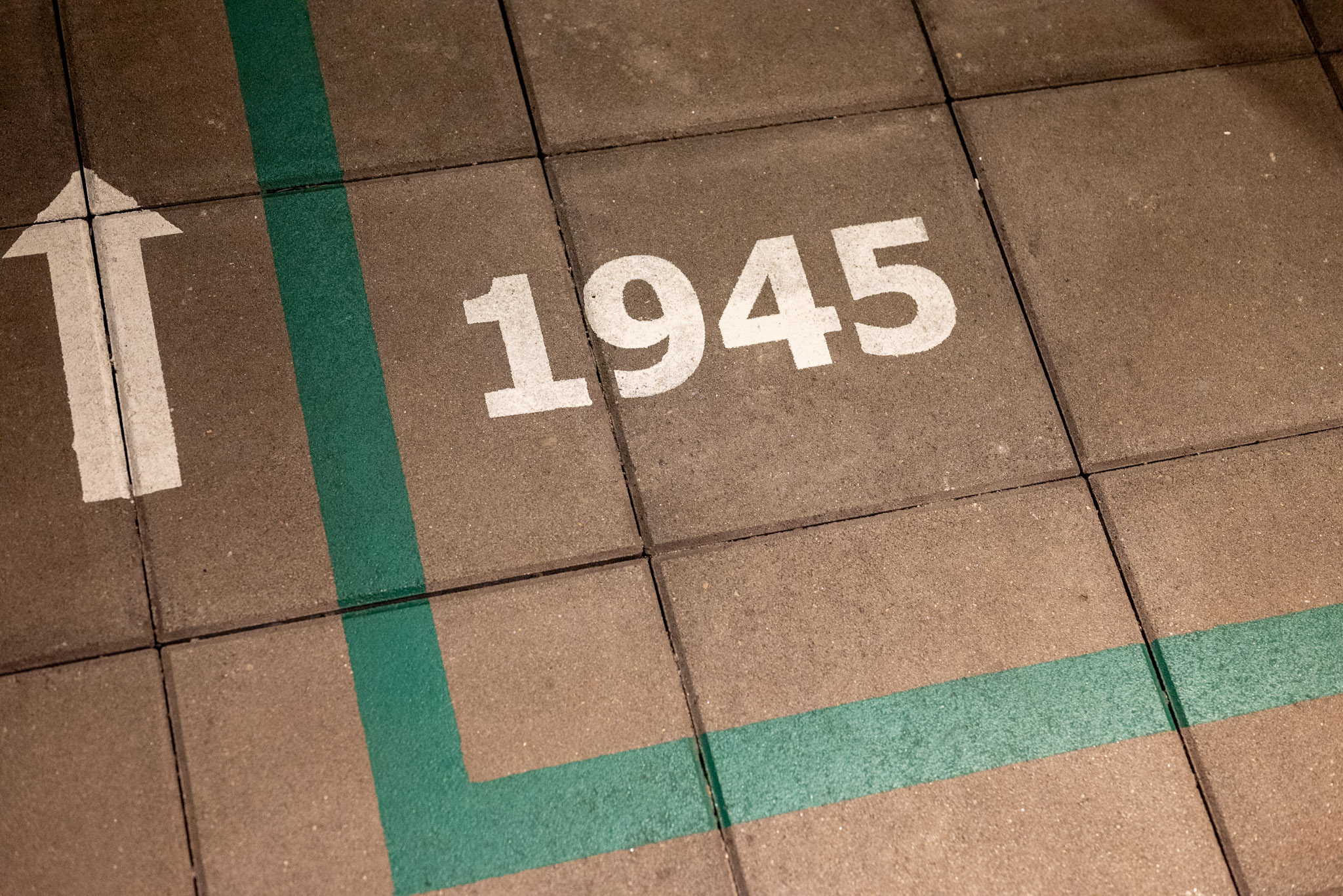In September 2023, the “Survival Paths” project brought together young Europeans from Germany, Poland, and Italy to explore the lesser-known post-WWII histories of displacement, survival, and rebuilding. Through an immersive journey across historical sites in Lower Silesia and Bavaria, participants engaged with the stories of Jewish survivors, displaced persons (DPs), and forced laborers — not through textbooks, but through site visits, expert dialogues, and creative media production.
Remembering in Wrocław and Dzierżoniów
The Polish leg of the journey began in Wrocław, a city whose post-war history mirrors the broader upheaval of Central Europe. After a thematic introduction by Seweryn Botor and an expert lecture by historian Dr. Marek Szajda, the group visited the Depot Center for a curated look at Wrocław’s dramatic transformation after 1945. Participants then traveled to the Owl Mountains to explore Project Riese, an unfinished Nazi construction site, offering a stark physical reminder of forced labor during the war.
The second day concluded with a moving visit to Dzierżoniów, a town that briefly became a center of Jewish life in post-war Poland. Participants toured the synagogue, learned about the lives of survivors who tried to rebuild their communities, and attended a concert and exhibition that highlighted the cultural legacy of those years.
Throughout the Poland program, participants reflected on what it meant to “start again” in a shattered world. With guidance from media trainers, they began conceptualizing their own digital outputs — short videos, podcasts, and social media stories — to share these experiences with broader audiences.
Exploring Historical Layers in Eichstätt
From Poland, the group traveled directly to Eichstätt, Germany, a strategic decision that enhanced sustainability and group cohesion. The program there centered on the town’s little-known history as the site of a Jewish DP camp after the war.
Hosted by the Catholic University of Eichstätt-Ingolstadt and supported by local partners, participants visited the Center for Flight and Migration and traced the remains of the former camp through a guided city walk. They also exchanged views with present-day migration workers from the regional first reception center, linking historical displacement with contemporary migration realities.
The workshops in Eichstätt offered participants not only historical insight but also space for digital storytelling. Drawing on their experiences from both locations, they worked on media outputs that explored questions of remembrance, identity, and belonging in today’s Europe.
Reflections and Resonance
The Poland-Eichstätt journey exemplified the project’s core aim: to engage youth in an active, critical remembrance culture. By connecting physical places with personal stories, and combining historical learning with media literacy, Survival Paths encouraged participants to reflect on the European legacy of forced displacement and survival — and to consider their own role in shaping a more inclusive future.
